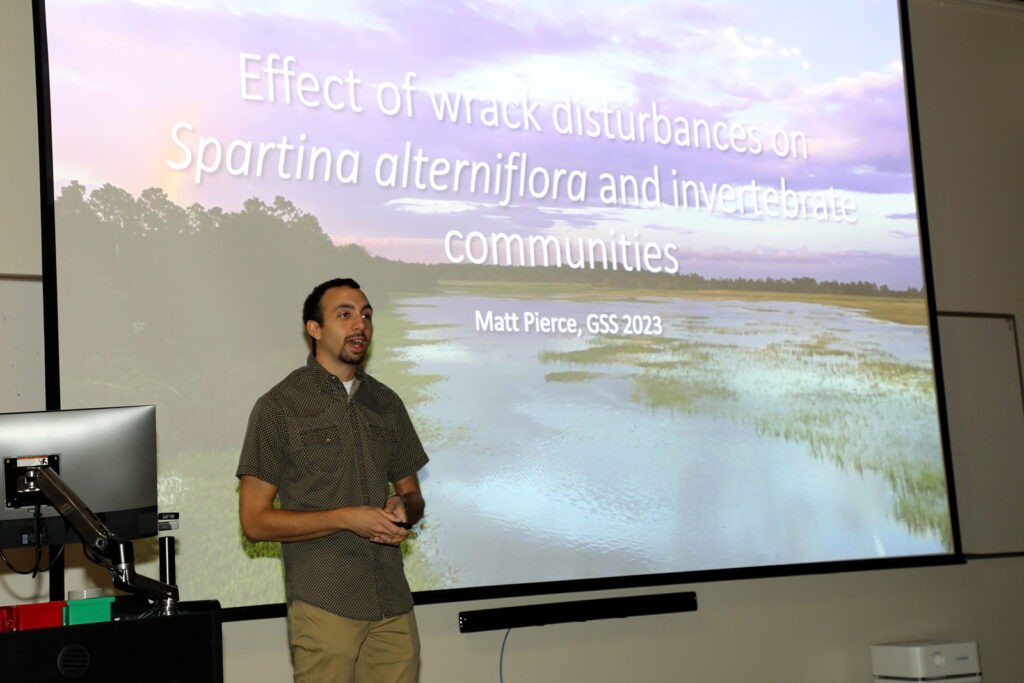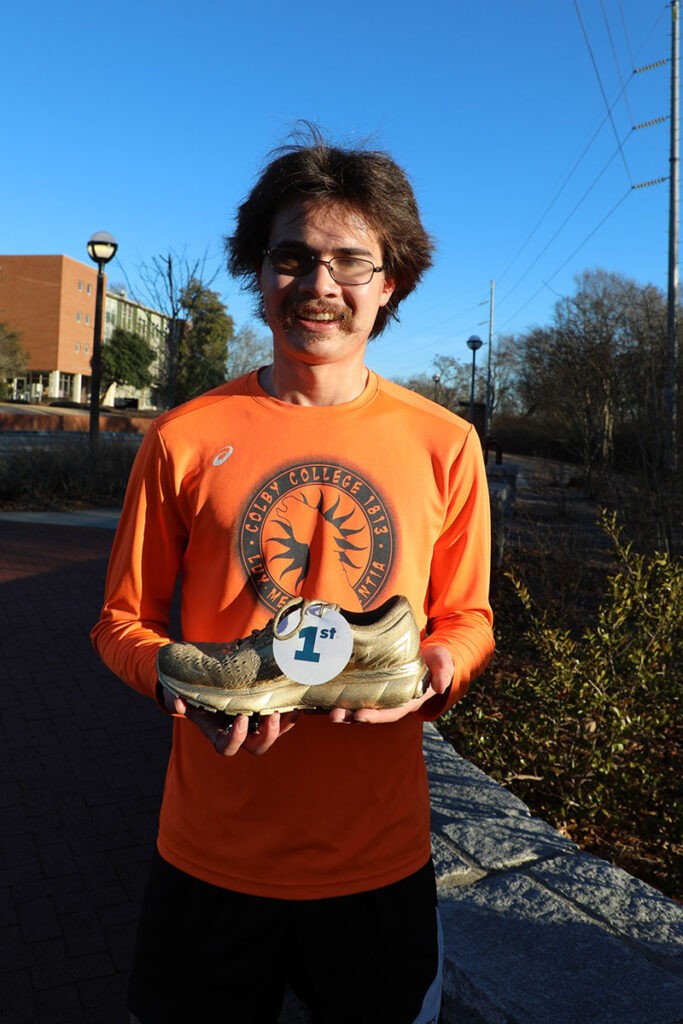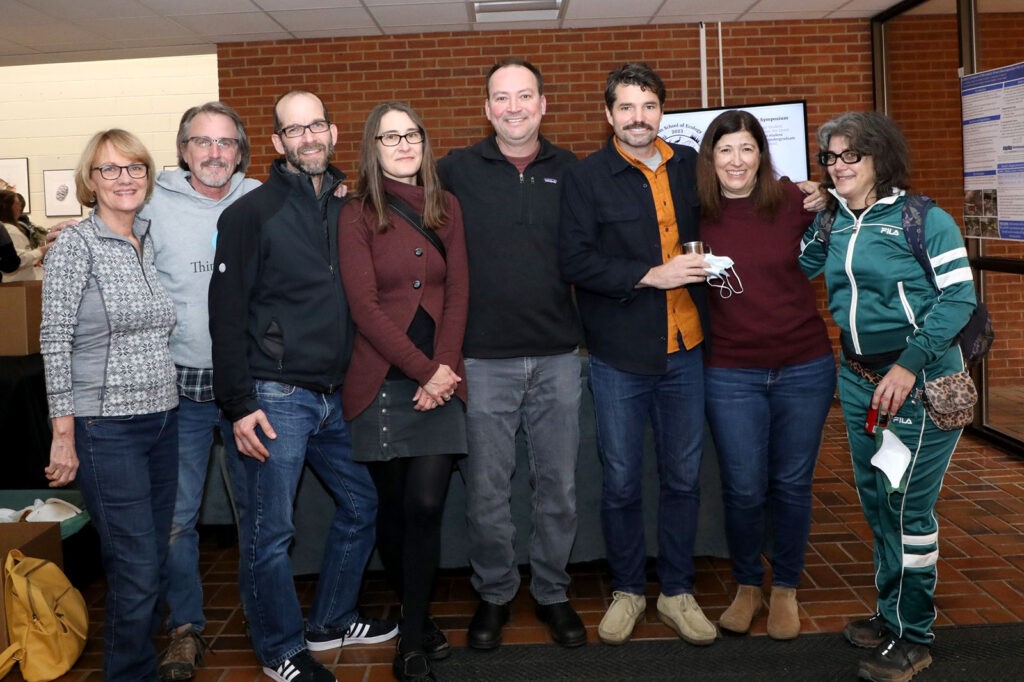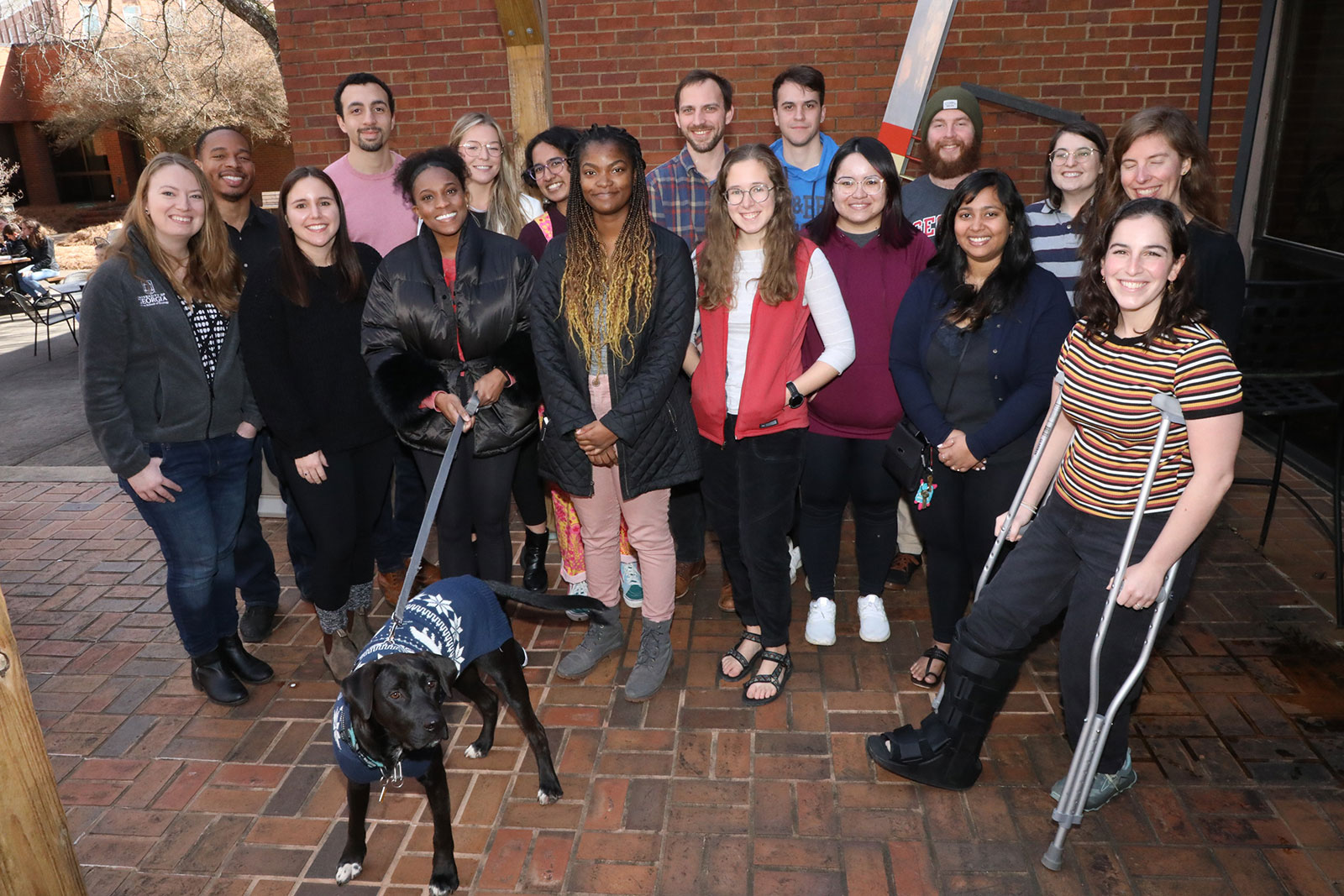About 100 people attended the 29th annual Ecology Graduate Student Symposium, held Jan. 27-28 at the Odum School of Ecology. GSS offered more than 20 presentations, undergraduate student posters and a keynote lecture by Odum graduate Jacob Allgeier (PhD ’13), assistant professor at the University of Michigan.

Organized by Odum School graduate students Eric Walther and Supraja Rajagopal, together with a large steering committee, GSS 2023 showcased student research at all stages of development. Presentations by 22 graduate students covered topics from bird conservation in traditional wasabi farming landscapes to benefits and drawbacks of various water quality analysis methods to parasite-induced mortality in fisheries. The first day of presentations ended with a poster session featuring research by 21 undergraduate students.
Day two of the symposium began with the John K. Spencer Memorial 5K Run & Walk, held in honor of John Spencer, a graduate student in the Odum School of Ecology and River Basin Center who studied urban streams and was passionate about freshwater ecology, conservation and ecological restoration. A grant program in Spencer’s name supports graduate student research with grants up to $2,000. This winner of this year’s 5K was Josiah Johnson, an Odum graduate who earned an M.S. in integrative conservation and sustainability in December. Second place went to undergraduate student Gabriel Sullivan-Brugger.

The symposium ended with the keynote by Allgeier, an ecologist with broad interests in how human-induced changes alter ecosystem processes and the services that they provide. His work is rooted in basic ecological theory and motivated by increasing need for food security, particularly in coastal societies. Much of Allgeier’s research takes place in tropical coastal ecosystems (mangroves, seagrass beds, and coral reefs), where he studies gradients created by anthropogenic impacts to test theory directly within the context of environmental change and biodiversity loss.
Allgeier received a B.S. in biology from Centre College in Danville, Kentucky, before coming to UGA, where he earned a Ph.D. in ecology under the mentorship of Distinguished Research Professor Amy Rosemond. Following his time in Odum, Allgeier held multiple postdoctoral appointments, including an NSF postdoctoral fellowship at the University of Washington. In 2017, he joined the Department of Ecology, Evolution, and Biology at the University of Michigan, and in 2020, he was elected an ESA early career fellow.
During his keynote address, “Farming the coastal oceans with fish pee: Applying ecological theory to help sustain ecosystem services in tropical coastal ecosystems,” Allgeier described a project based on a key finding of his dissertation—that fish facilitate their own habitat by providing some of the largest sources of nutrients to coral reefs, seagrass and mangroves. He and his team built artificial reefs at sites in the Bahamas and Haiti to test whether fish excretion can have a positive effect on fish production.
“We found that it did,” he said. “My goal is to scale it up and use it to farm fish sustainably in these systems.”
The project also builds on his core values and a desire to give back to people and their communities. Allgeier makes a point of creating relationships and partnering with the stakeholders where he works, a process that helps him hone his research questions to be more effective.
“I came to realize that the approach to doing science could be as important—maybe equally—as the science we’re doing,” he said. “I can learn from them and get help from them, and maybe my work can have positive outcomes for them.”
In addition to current student, faculty and staff attendees, GSS 2023 was also attended by a number of Odum School alumni, including Carmen Kraus (BS ’15), Dusty Kemp (PhD ’10), Susan Dye (MS ’05), Cynthia Tant (PhD ’11), John Davis (PhD ’09) and former Ecology staff member Janice Sand, who helped to launch the first GSS event in 1995.


